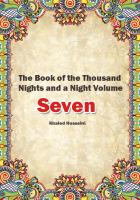The fifth class consisted of persons who had been far more sinned against by society than they had sinned against it. These were castaways, stupefied by continual oppression and temptation, such as the boy who had stolen the rugs, and hundreds of others whom Nekhludoff had seen in the prison and out of it. The conditions under which they lived seemed to lead on systematically to those actions which are termed crimes. A great many thieves and murderers with whom he had lately come in contact, according to Nekhludoff's estimate, belonged to this class. To this class Nekhludoff also reckoned those depraved, demoralised creatures whom the new school of criminology classify as the criminal type, and the existence of which is considered to be the chief proof of the necessity of criminal law and punishment. This demoralised, depraved, abnormal type was, according to Nekhludoff, exactly the same as that against whom society had sinned, only here society had sinned not directly against them, but against their parents and forefathers.
Among this latter class Nekhludoff was specially struck by one Okhotin, an inveterate thief, the illegitimate son of a prostitute, brought up in a doss-house, who, up to the age of 30, had apparently never met with any one whose morality was above that of a policeman, and who had got into a band of thieves when quite young. He was gifted with an extraordinary sense of humour, by means of which he made himself very attractive. He asked Nekhludoff for protection, at the same time ****** fun of himself, the lawyers, the prison, and laws human and divine.
Another was the handsome Fedoroff, who, with a band of robbers, of whom he was the chief, had robbed and murdered an old man, an official. Fedoroff was a peasant, whose father had been unlawfully deprived of his house, and who, later on, when serving as a soldier, had suffered much because he had fallen in love with an officer's mistress. He had a fascinating, passionate nature, that longed for enjoyment at any cost. He had never met anybody who restrained himself for any cause whatever, and had never heard a word about any aim in life other than enjoyment.
Nekhludoff distinctly saw that both these men were richly endowed by nature, but had been neglected and crippled like uncared-for plants.
He had also met a tramp and a woman who had repelled him by their dulness and seeming cruelty, but even in them he could find no trace of the criminal type written about by the Italian school, but only saw in them people who were repulsive to him personally, just in the same way as some he had met outside the prison, in swallow-tail coats wearing epaulettes, or bedecked with lace. And so the investigation of the reasons why all these very different persons were put in prison, while others just like them were going about free and even judging them, formed a fourth task for Nekhludoff.
He hoped to find an answer to this question in books, and bought all that referred to it. He got the works of Lombroso, Garofalo, Ferry, List, Maudsley, Tard, and read them carefully. But as he read he became more and more disappointed. It happened to him as it always happens to those who turn to science not in order to play a part in it, nor to write, nor to dispute, nor to teach, but simply for an answer to an every-day question of life.
Science answered thousands of different very subtle and ingenious questions touching criminal law, but not the one he was trying to solve. He asked a very ****** question: "Why, and with what right, do some people lock up, torment, exile, flog, and kill others, while they are themselves just like those whom they torment, flog, and kill?" And in answer he got deliberations as to whether human beings had free will or not. Whether signs of criminality could be detected by measuring the skulls or not.
What part heredity played in crime. Whether immorality could be inherited. What madness is, what degeneration is, and what temperament is. How climate, food, ignorance, imitativeness, hypnotism, or passion act. What society is. What are its duties, etc., etc.
These disquisitions reminded him of the answer he once got from a little boy whom he met coming home from school. Nekhludoff asked him if he had learned his spelling.
"I have," answered the boy.
"Well, then, tell me, how do you spell 'leg'?
"A dog's leg, or what kind of leg?" the boy answered, with a sly look.
Answers in the form of new questions, like the boy's, was all Nekhludoff got in reply to his one primary question. He found much that was clever, learned much that was interesting, but what he did not find was an answer to the principal question: By what right some people punish others?
Not only did he not find any answer, but all the arguments were brought forward in order to explain and vindicate punishment, the necessity of which was taken as an axiom.
Nekhludoff read much, but only in snatches, and putting down his failure to this superficial way of reading, hoped to find the answer later on. He would not allow himself to believe in the truth of the answer which began, more and more often, to present itself to him.















